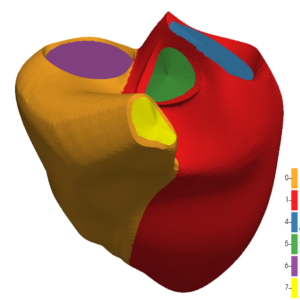Overview
Since its launch in April 2017, the Wellcome EPSRC Centre for Medical Engineering (CME) hosted by the School of Biomedical Engineering & Imaging Sciences (BMEIS) and the Department of Neuroimaging at King’s College London (KCL), focused on bringing together expertise in engineering, physics, chemistry, artificial intelligence, and computer science into medicine.
- Computational Science: using artificial intelligence, machine & deep learning and computer modelling to improve diagnostics, patient stratification and outcome prediction
- Physics and Engineering: to improve the image acquisition, reconstruction and hardware associated with Magnetic Resonance Imaging (MRI)
- Interventional Engineering: expanding our translational research capabilities by developing robotic systems for surgery and medical interventions
- Imaging Chemistry: with Metallo-radiochemistry, Translational Carbon and Fluorine PET Chemistry and Cell Tracking to develop new PET tracers and cell‐based therapies
The Centre has established links with industrial partners and access to cutting-edge research facilities located within a major NHS teaching hospital in Central London. This allows for an exciting, synergistic environment where the most challenging research questions can be addressed to improve the care and outcomes of patients.
In 2022, an extension to the Centre was awarded to continue seek for the Centre’s aims to create a platform for developing and exploiting new emerging technologies that will shape the future of our collective multidisciplinary research programmes. The CME has undergone a transformation and four new research Pillars have been selected to strengthen and deepen the Centre’s scientific core for a self-sustaining next phase of clinical innovation.
The Centre’s four research Pillars are:
Pillar 1. Total body PET for Cell Tracking in Cell-based Therapies: using our strengths in PET imaging to overcome key obstacles in cell therapies, unlocking their enormous potential to provide transformative new treatments.
Pillar 2. Precision Medicine in Cardiology by Digital Twinning: demonstrating the power of data science and modelling to address key questions in personalised medicine.
Pillar 3. Trustworthy Artificial Intelligence for Sensory-rich Surgical Robotics: essential investment to achieve optimal outcomes from our new staff, capabilities and facilities for surgical science and for AI.

Pillar 4. Low-field MRI: capitalising on recent advances in engineering and AI to provide a step change in clinical utility and cost of this important technology.
These Pillars reflect and enhance core strengths of the Centre and seek to leverage the opportunities created by our embedded structure, which brings critical mass of medical engineering into a clinical host environment. Early-stage research will be regularly presented to a Clinical Advisory Group, providing insight to inform and guide research, and ensuring continuous focus on the most important clinical and biological questions.



